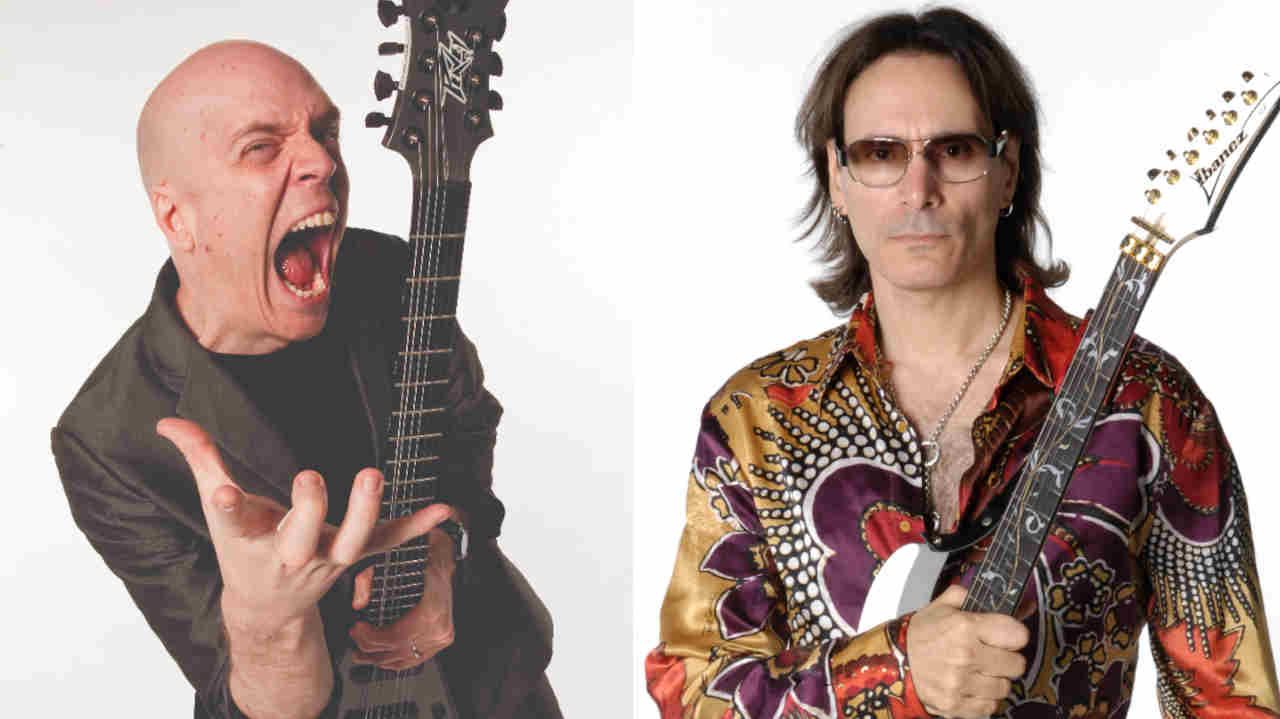We spoke to the man behind 2000 Trees about what it's really like to book a rock festival
James Scarlett is the man behind 2000 Trees and ArcTanGent festivals, but how on earth does he pull it together?
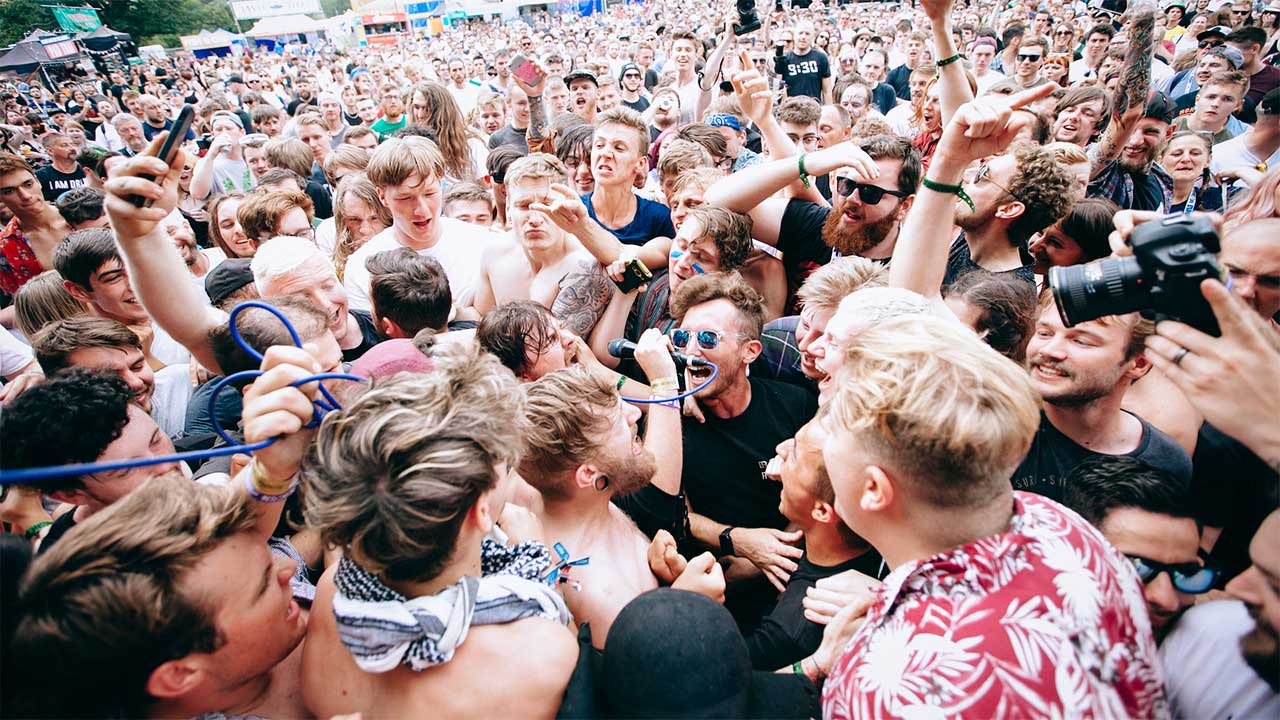
Select the newsletters you’d like to receive. Then, add your email to sign up.
You are now subscribed
Your newsletter sign-up was successful
Want to add more newsletters?

Every Friday
Louder
Louder’s weekly newsletter is jam-packed with the team’s personal highlights from the last seven days, including features, breaking news, reviews and tons of juicy exclusives from the world of alternative music.

Every Friday
Classic Rock
The Classic Rock newsletter is an essential read for the discerning rock fan. Every week we bring you the news, reviews and the very best features and interviews from our extensive archive. Written by rock fans for rock fans.

Every Friday
Metal Hammer
For the last four decades Metal Hammer has been the world’s greatest metal magazine. Created by metalheads for metalheads, ‘Hammer takes you behind the scenes, closer to the action, and nearer to the bands that you love the most.

Every Friday
Prog
The Prog newsletter brings you the very best of Prog Magazine and our website, every Friday. We'll deliver you the very latest news from the Prog universe, informative features and archive material from Prog’s impressive vault.
It must be hard putting on a rock festival. Like really really hard. You might think it’s tough work cleaning the loo after a night on cheap lager and dodgy curry, but that’s nothing compared to keeping hundreds of toilets serviceable for thousands of music fans over the weekend. Oh and there’s the small matter of actually booking some bands that people want to see!
To find out what it's really like to put on a festival, we caught up with the man behind 2000 Trees and ArcTanGent festivals James Scarlett. James runs both festivals with his friends, getting involved in everything from booking bands, site logistics and what beer is sold.
The first 2000 Trees took place in 2007. Were you part of the music industry before you put on a festival?
“Not in the slightest. My only connection to music was that I liked going to festivals and listening to music. I didn’t know anyone in any bands really, I didn’t know how the industry worked. We just had too much to drink at Reading festival one year and decided that we can do something that’s better. I’m into heavy music and I like the small independent festivals, so we brought together heavy music and ‘boutique’ festivals with 2000 Trees and now ArcTanGent as well.”
Was there a mission for statement for the festival?
“It was just like ‘Let’s do something better than this’. Apart from the music, the things that are important at a festival are decent food and drink – so not warm pints of cheap beer and rat burgers – a nice location, clean toilets and plenty of them, and good waste management. Having good litter pickers is important otherwise you’re just living in your own filth. Just ‘cause you’ve got a hardcore band playing it doesn’t have to be a shitty festival.”
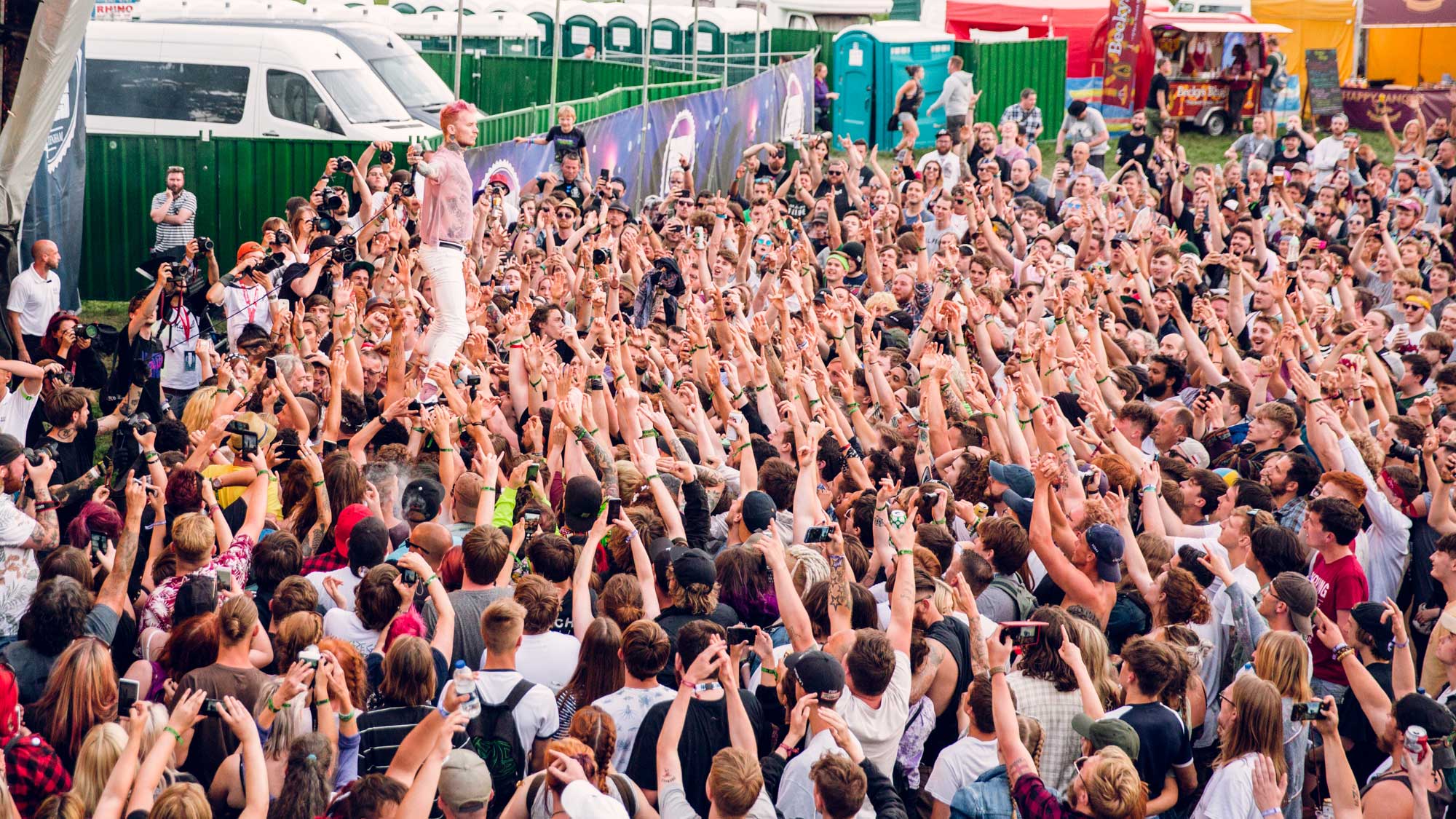
It seems like festival ticket prices are increasing exponentially. How does that feel as a promoter?
Sign up below to get the latest from Metal Hammer, plus exclusive special offers, direct to your inbox!
“We’ve tried to keep it as low as we can. Obviously we’re trying to make money in some way – I have to pay my mortgage and eat – but it costs hundreds of thousands of pounds to put on a festival, even one for 10,000 people like 2000 Trees, so it’s not like we can charge ten quid a ticket, but it’s gone crazy in the industry.”
Will get to a point with the bigger festivals where fans refuse to pay that much money?
“I think it’s already started happening – our sales are the best we’ve ever had. Clearly, you’d rather pay £100 than £250. And the thing about 2000 Trees is it’s about discovering your new favourite band, it’s not just about who’s headlining the festival. We’ve got a really good track record about introducing people to new bands who they go on to love.”
Do you think smaller, indie festivals are the way forward?
“Absolutely. I think for a punter it’s a way more rewarding experience. Even with the biggest bands – like at Roadburn or 2000 Trees – without too much effort you can get to the front and see the band, but at the bigger festivals it’s not a lot of fun sat on a hill behind another 80,000 people. I do think a shift to the more boutique has been going on in the UK festival industry for quite some time, but the rock end of the spectrum has taken longer to catch on.”
Why has rock taken so long to catch on? Because we’re so fixated on wanting to see the biggest bands?
“I’m a rock music fan and I’ve been to Monsters Of Rock, Download etc a million times, and frankly I want to see Tool, Metallica and Maiden ha ha! But you can’t have the same three bands every year. They’ve started retiring and they will continue to retire. We all know there isn’t the same level of bands replacing them, so I think people will start to look at other festivals like 2000 Trees. I’ve got a lot of time for Bloodstock, they are an independent and they’re doing things for the right reasons. I think people will look at 2000 Trees, ArcTanGent and Bloodstock as alternatives to some of the bigger ones, but time will tell how that plays out.”
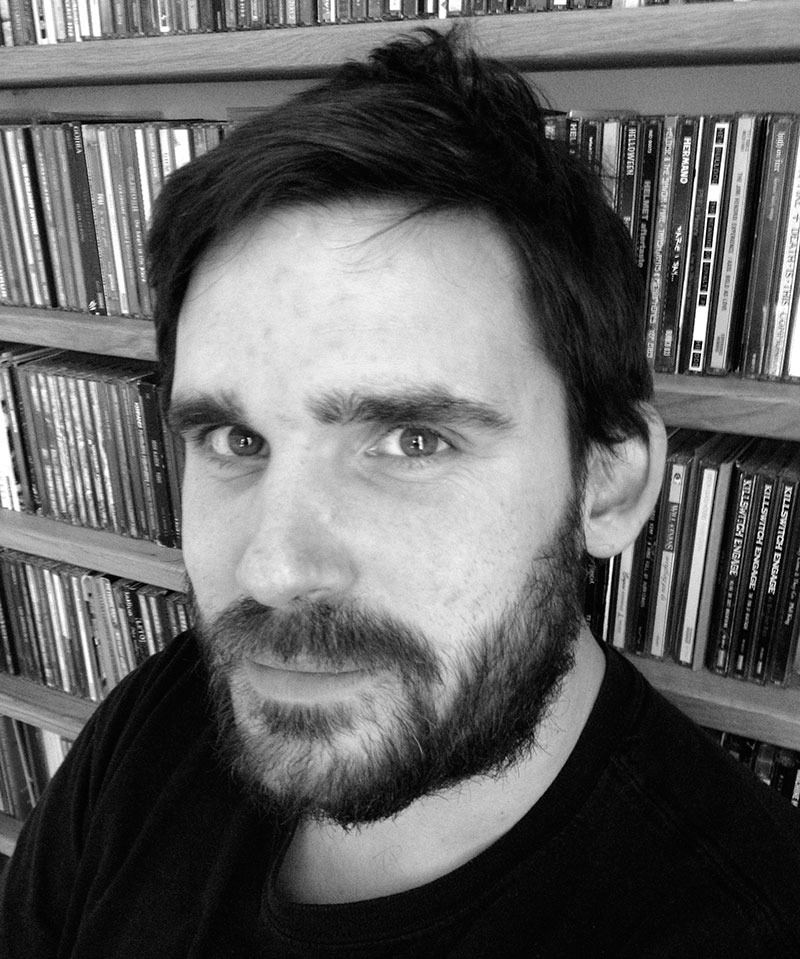
Are you worrying about a lack of headline-level bands? It feels like you have a bigger pool to choose from.
“Clearly you don’t want to keep repeating headliners over and over again, and there is a bigger pool, but what a lot of people don’t realise is there’s a lot of exclusivity in the background. I can’t book bands that are playing other rock festivals in the UK because there’ll be an exclusive clause in their contract That means I’m picking from a bigger pool but anyone who’s headlining 2000 Trees could probably be a second stage headliner at Download or a Slam Dunk headliner. It’s still tough, it’s very competitive to get the bands you want.”
Do you have a formula or a system when putting a lineup together? Do you need to make sure certain scenes are represented?
“There’s not a formula to it, but if you look at the rock scene in the UK, at 2000 Trees there will be an element of pop-punk, some hardcore stuff, the more pop-rock/Radio 1 rock bands, then some properly alternative rock music like At The Drive-In and Refused. It’s not a formula but I’m trying to make sure I keep various groups of people happy.”
ArcTanGent has a very different aesthetic. Do you think they appeal to different groups of people or are you seeing a crossover of fans?
“There’s a little bit of crossover, but they definitely appeal to different people. ArcTanGent is much more post-rock, post-metal, math-rock, and some of those bands are heavy and some of them aren’t. We’ve had Dillinger Escape Plan, Converge, Cult Of Luna kind of heaviness but some of the softer math rock bands like American Football. I think ArcTanGent is a left-field alternative to 2000 Trees, less commercial. That’s what I listen to.”
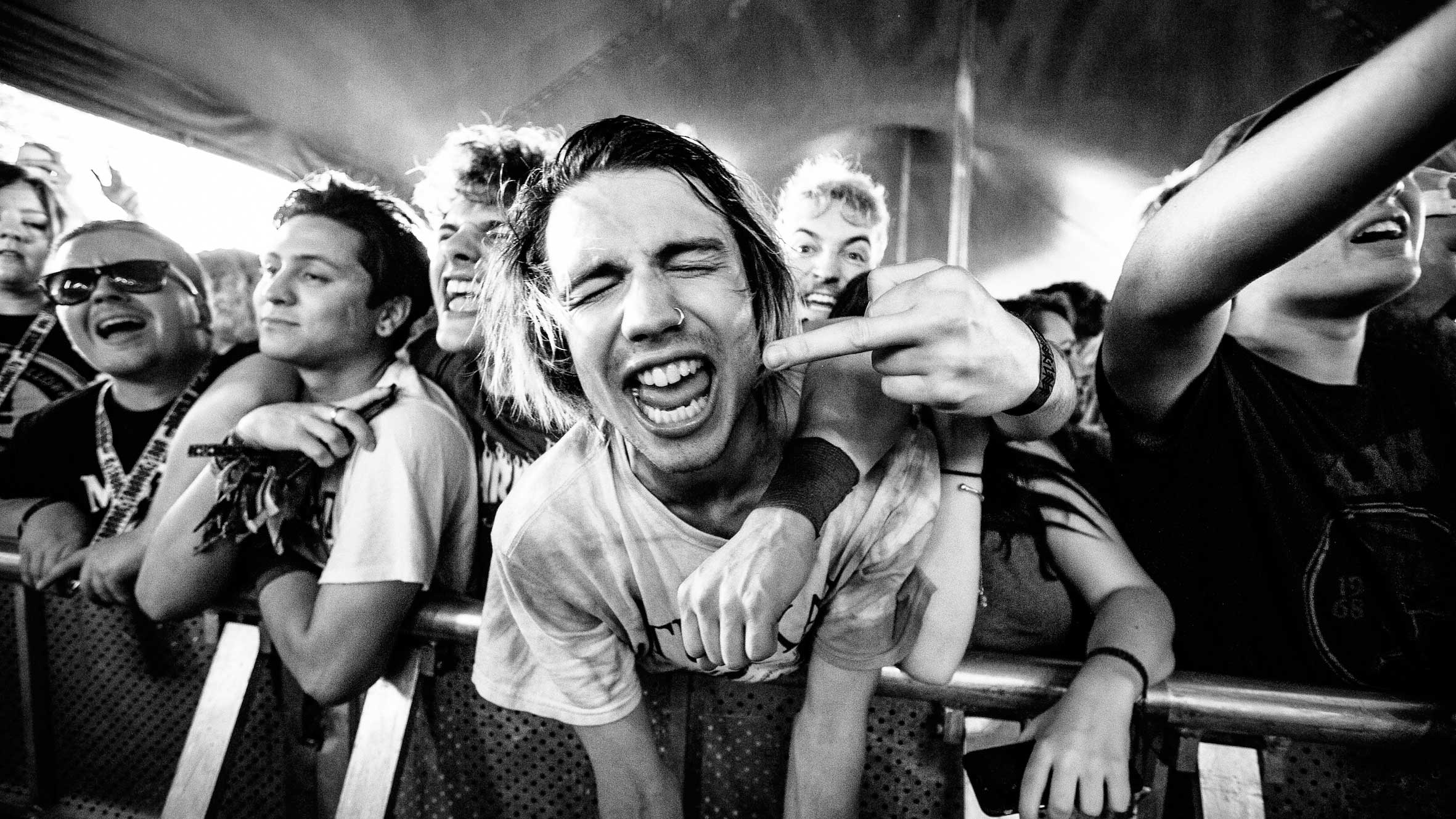
How in-tune are you to what’s going on in British music and how to try to stay on top of what people are into?
“My theory is, if there are 10,000 new bands in a year, I don’t want to be the one listening to 10,000 bands, that’s not a good use of my time, so I need some kind of filtering. The filtering is record labels like Holy Roar and Big Scary Monsters who I really respect, plus I have some really good friends in the industry who are agents, managers or journalists who might suggest bands to me. I subscribe to Metal Hammer and Prog magazines, and others. So you’re then listening to 100 new bands instead of 10,000 and I think it means you can spend a lot more time realising that Boss Keloid are amazing. That sort of music, and I think this is the hard thing, if you just put it on for 30 seconds how can you tell if it’s any good?”
There has been a backlash to certain festivals booking certain bands this year in the wake of the #MeToo movement. Do you take into account a band’s behaviour outside of music when booking them?
“The thing you have to be very careful about, as a booker, is thinking you can be the moral police. When you look at where the rock industry’s come from and some of the band’s like Led Zeppelin and Guns N’ Roses, those bands wouldn’t get away with some of their behaviour nowadays, some of the things they did in the ‘70s. Do I look at it? Yes. But I am not the moral police. The very difficult thing about some of the allegations is that I’ve no idea if they’re true or not. Would I book a band that have been shunned by everyone because they’ve admitted a very serious allegation? Absolutely not. But where do you draw the line? I don’t know what the answer is. It’s a tricky one. It’s massively difficult. What I know is that we stared 2000 Trees with all those great aims in mind, we wanted to be independent and better than the bigger corporate festivals, and I want our audience to feel like we’re doing the right thing, but it’s hard to know what the right thing to do is with regards to allegations that I have no idea if they’re true. There’s a lot in the industry at the moment.
Over the last five years there have been numerous bands with outstanding allegations against them, and we’ve had some criticism. We take it massively seriously, very seriously. But, again, I don’t think I’m the moral police. I won’t name the band, but there was a band that I booked that had an allegation against them which they admitted and I unbooked them before they were announced, we pulled them. We are looking at these things and if the allegations are 100% true then there’s no doubt we don’t want those bands on our festival. But I don’t think any of the bands that have played or are playing 2000 Trees this year are playing have proven allegations against them. It’s a really hard issue.”
If you could book any headliner at 2000 Trees and ArcTanGent who would it be?
“ArcTanGent would be Mars Volta – they’re my favourite band of all time. The Mars Volta and Mogwai at ArcTanGent. Deftones at either festival. If we were gonna go stupid big then Queens Of The Stone Age. They are too big but Queens Of The Stone Age at 2000 Trees would work.”

2000 Trees takes place on July 12-14 and is headlined by At The Drive In, Twin Atlantic and Enter Shikari.
ArcTanGent takes place August 16-18 and is headlined by And So I Watch You From Afar, Glassjaw and Shellac.
Luke Morton joined Metal Hammer as Online Editor in 2014, having previously worked as News Editor at popular (but now sadly defunct) alternative lifestyle magazine, Front. As well as helming the Metal Hammer website for the four years that followed, Luke also helped relaunch the Metal Hammer podcast in early 2018, producing, scripting and presenting the relaunched show during its early days. He also wrote regular features for the magazine, including a 2018 cover feature for his very favourite band in the world, Slipknot, discussing their turbulent 2008 album, All Hope Is Gone.
